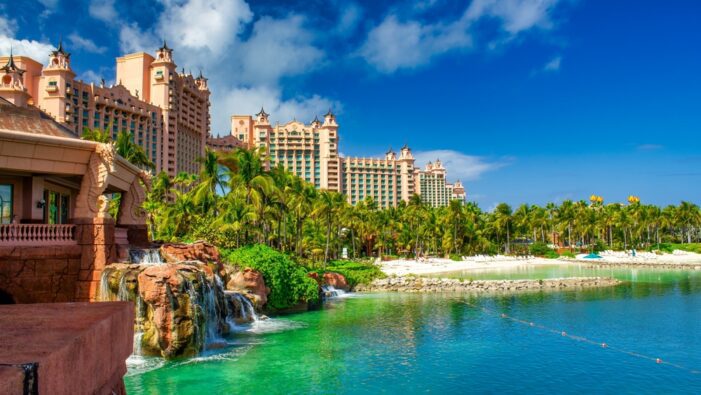The Bahamas—an archipelago of around 700 islands—blends vibrant Afro-Caribbean heritage, English-speaking ease, and one of the Caribbean’s most dynamic, investment-friendly economies. For African American investors seeking connection, cultural resonance, and wealth growth, The Bahamas offers a compelling mix of incentives and opportunity.
- Cultural Landscape & Identity
Afro‑Caribbean Heritage
The Bahamian population is overwhelmingly of African descent, with culture shaped by centuries of West African traditions underpinned by British colonial influence. This identity permeates music (rake-and-scrape, Junkanoo), cuisine (conch fritters, peas ‘n’ rice), and community life. Junkanoo, the island’s iconic street carnival, resonates powerfully with African American traditions of celebration, resilience, and freedom.
Arts & Community
Bahamians preserve their heritage through storytelling, folk art, coastal crafts, and cultural institutions, making the islands ideal for heritage tourism or diaspora engagements honoring African roots.
- Language & Accessibility
English is the Official Language
Standard English is spoken widely in business, education, and government—ensuring accessibility for African American investors and entrepreneurs. In everyday life, Bahamians also use Bahamian English Creole, a melodic vernacular that reflects shared Black island heritage.
- Economic Foundations & Key Sectors
Tourism & Hospitality
Tourism drives the economy, contributing approximately 50–60% of GDP and employing half of the workforce. Nassau and Freeport host luxury resorts, private islands, and mega properties like Atlantis. With more than 80% of visitors arriving from the U.S., this reliance underscores consistent investor interest.
Financial & Offshore Services
The Bahamas is a renowned international banking hub. It hosts over 250 licensed banks and trust companies, offering IBC structures, zero-year corporate tax on foreign earnings, and strong client confidentiality laws. Financial services contribute around 15–17% of GDP.
Free Trade & Export Zones
Freeport on Grand Bahama Island benefits from the Hawksbill Creek Agreement, enabling duty-free trade until 2054. This, along with membership in CARICOM and U.S. trade programs like the Caribbean Basin Initiative (CBI), gives Bahamian exports preferred access to major markets.
Agriculture, Fisheries & Niche Manufacturing
Small-scale sectors—marine exports (lobster), specialty agriculture, and light manufacturing—combined claim about 5–10% of GDP. The government seeks foreign investment in agro-industries, mariculture, and food processing to reduce imports and stimulate exports.
- Tax & Investment Incentives
Tax Neutrality
The Bahamas imposes no personal income tax, corporate tax, capital gains tax, or inheritance tax. The government raises revenue via VAT (10–12%), import duties, property taxes, and license fees. Residents and investor‑owners benefit from a highly favorable financial climate.
Residency-by-Investment
Foreign investors can qualify for a Certificate of Economic Permanent Residency by investing at least USD 1 million in approved real estate or designated projects. Holders must reside for a minimum of 90 days per year and maintain the investment for 10 years post-issuance. There is no formal Citizenship by Investment program—though permanent residency can eventually allow citizenship after at least a decade of residency.
Import & Customs Relief
Under multiple incentive laws, the Bahamas offers exemption from customs duties on approved building materials, equipment, and raw inputs for select investment projects, including tourism and agri-business developments.
Equal Treatment for Investors
By law, foreign investors receive the same access to grants and tax concessions as Bahamian nationals—no special preferential limits based on nationality.
- Opportunities Especially for African American Investors
Heritage & Tourism Ventures
Create cultural tourism projects—heritage resorts, storytelling festivals or culinary tours celebrating Bahamian and wider African diaspora traditions like Junkanoo or conch-based cuisine. Such ventures can strengthen connection and promote authenticity.
Hospitality & Real Estate Development
Investing in luxury villas, boutique hotels, or resort properties—particularly those aligning with cultural narrative and identity—can appeal to diaspora travelers and global HNW tourists.
Creative Economy & Media
The Bahamas is growing in film tourism and creative content, with production-friendly locales. Investors focused on Afro-Caribbean storytelling, documentaries, or music events may find receptive local and diaspora audiences.
Financial Services, Offshore & ESG-linked Investments
Bahamas-based IBC structures and banking offer asset protection and tax efficiency. Investors may support fintech, green infrastructure, or sustainability-focused developments, aligning with global ESG trends.
- Strategic Approach for African American Investors
- Clarify Objectives: Determine if your primary goal is residency, financial return, cultural legacy, or global mobility.
- Select Pathways: Real estate ≥ USD 1M for permanent residency; cultural or tourism projects may qualify for relief programs.
- Create Community-Based Ventures: Partner with local artisans, cultural institutions, or NGOs to co-develop projects with authenticity and community impact.
- Leverage Tax Neutrality: Use residency to structure global business operations tax-efficiently; offshore IBCs can shelter foreign income.
- Engage Local Expertise: Work with Bahamian legal, economic, and investment agencies to navigate permitting, duty exemptions, and residency criteria.
- Plan for Long-Term Legacy: Consider combining investment with scholarships, cultural programming, or mentorship to build sustainable diaspora connections.
- Summary & Future Outlook
The Bahamas provides a stable, high-income economy underpinned by tourism and financial services. Its English‑language environment, Afro‑Caribbean culture, and tax-neutral regime offer strong appeal for African American investors who value both financial returns and cultural connection.
While direct Citizenship by Investment does not exist, the Investment‑linked permanent residency route allows meaningful access over time. Opportunities abound in hospitality, creative tourism, agro-business, and offshore financial ventures—especially when aligned with cultural vision and diaspora engagement.
With solid incentives, transparent equality for foreign investors, and global connectivity, The Bahamas stands as a tropical gateway offering both economic potential and cultural resonance for investors looking to merge profit with purpose.


